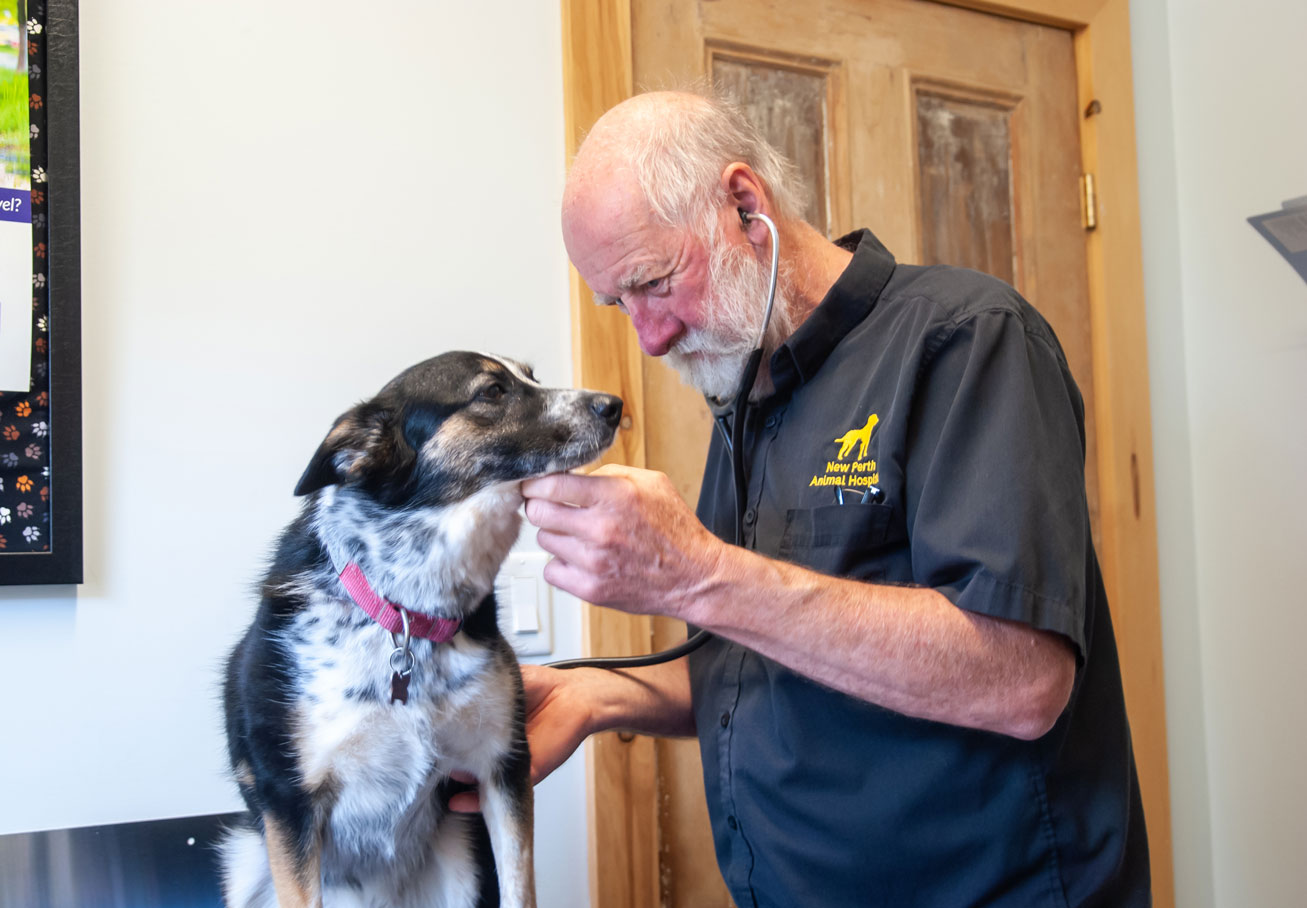What we think you, your pet and your vet should be able to expect from a veterinary visit.

The Cambridge English dictionary defines “etiquette” as the set of rules or customs that control accepted behaviour in particular social groups. We recently were approached by one of our Facebook page followers who lives in another province and recently went through a very negative veterinary experience to “explain to pet owners how their pet should be treated and more particularly what should not be tolerated at a visit to the vet.” We think that there should be expectations on both sides and wanted to share our views on what you should be able to expect and how to make your pet’s vet visit a great one.
Expect (and give) Respect
- Whenever possible, book an appointment. While walk-ins can sometimes be easily accommodated, other times you’ve thrown a clinic’s entire day off and caused someone else to have to wait because of a snowballing effect.
- Do your best to be on time or call if you are going to be late. Remember just because you called, this might still cause a problem for your vet as they may have another appointment following yours.
- While your vet will likely try to keep to a schedule, many clients come in with a year’s worth of problems to discuss. If you have concerns when you book your appointment, try to share them with the veterinary team member who is booking your appointment so they can schedule a bit more time if necessary or be prepared for a follow-up appointment, drop off for further testing etc. And if you are on a tight schedule yourself, share that with the veterinary team so everyone knows you have a bit of a time crunch!
- Understand too that emergencies always take precedence and just can’t be scheduled- just as you would expect if it was your pet collapsed from heat stroke, was hit by a car, or got into poison etc. By the way, no matter how busy your veterinarian might be, they should ALWAYS be willing to see your pet in an emergency.
- If the vet is going to be significantly delayed, the clinic should call to give you a heads up wherever possible. Be sure you have given appropriate contact info to the clinic too!
Come Prepared
- Don’t be afraid to bring a list! We love lists.
- Share a proper history. Admit if you haven’t been giving all of the medication, if you’re giving your pet extra treats or cheating on instructions.
Common Courtesy
- Don’t answer your cell phone (that includes YOU too, vets) during an appointment unless you are expecting an emergency call and then you should let us know up front.
- Be respectful of other pet owners.
- Have your dog on a leash. If you don’t have a leash, most veterinary clinics will be happy to loan one or even give you a complimentary one! If your pet is more difficult to handle consider leaving them in the car while you pop in to survey the situation and make sure they are ready to show you in. A vet clinic should do their best to accommodate you and your pet if your pet is anxious or difficult around other dogs but you do need to share this information with them, ideally when making your appointment!
- And dog owners, please don’t let your dogs sniff at a cat in a carrier! Even if a cat is accustomed to dogs, they will NOT be happy to be face to face with a dog they have not met before.
- Cats are safest transported in cat carriers. Ask your vet for tips as to how to get your cat comfortable with their carrier – a t-shirt from home, toys, treats etc, leaving your carrier out ahead of time, etc. If you do not own your own carrier, some vet clinics have carriers available for you to borrow, or you may be able to borrow one from a friend.
- If your clinic happens to be cat friendly, they will either show you and your cat directly into an exam room or elevate and cover your carrier with a Feliway towel but they should NOT put you in a situation where your cat is nose to nose with a dog.
Accidents Happen
- We know that accidents happen. If your pet makes a mess, we have staff who will gladly help clean it up, but they can’t if they don’t know. We have clients who come into the clinic looking for poop bags and others who will “poop and run”! Pay attention to your intact males who like to mark territory. There’s nothing more embarrassing for a vet team member than to find a puddle of urine on a door frame that they didn’t know was there!
Expect to be part of your pet’s health care team
- Tell the veterinary team and the vet what you are worried about. After all, you are the one who spends the most time with your pet and would be the one to recognize subtle changes in behaviour.
- Your concerns should be acknowledged and addressed and you should feel that your vet is listening to what you have to say.
- You need to ASK questions. Do not be afraid or embarrassed to say that you don’t understand. After all, you’re not the one with the veterinary degree! And if you’re smiling knowingly, because you just happen to have your own medical degree, please tell us that too!
- Your vet should WANT you to understand what is going on. (Actually, we think pet owners are more likely to follow our directions if they understand WHY we are asking them to do certain things). Your vet or perhaps the registered veterinary technician should take the time to explain things and not just hand you a prescription of medication.
Transparency
- Transparency is something you should be able to expect. Many veterinarians will perform most procedures while the owner remains with their pet but in some instances, just like with children, your pet might actually be less anxious and consequently behave better without you.
- You can expect your vet clinic team to explain exactly what they want to do, why and even how, and remember if there’s something you have questions about, ASK those questions!
Follow-up
- We think you should be able to expect some degree of follow-up to ensure that problems DO resolve.
- If your vet clinic leaves a message on your voicemail, you need to phone them back though, even if things are going great. Just knowing how a patient responded might make treatment next time a lot easier, and also makes it easier to come to a proper diagnosis if things are not responding the way they should.
Caring and Compassion
- Almost lastly, but really most importantly, your vet and their team should show genuine interest in your pet’s comfort, addressing issues of anxiety with gentle touch, soothing words and lots of treats! (by the way, DO share if your pet has actually bitten someone before) If they only like a certain type of treat consider bringing some with you for the doctor or tech to give.
- Attention to assessing and addressing pain issues. Dogs will often make it more obvious to their owners that they are hurting; cats are known to be masters at hiding pain and signs of pain may be as subtle as not grooming like they used to, not jumping or being less interactive (signs which owners may often wrongly attribute to aging).
- Pets DO feel pain and recent research has actually shown that their brains will develop pathways to recognize pain even faster, if their pain is not proactively treated, and pain can be harder to treat another time in the future.
- Pain management has changed dramatically in recent years so you can NOW expect your vet to prescribe pain medication routinely following surgeries where you may have had a pet operated on years ago and no pain medication was given. Modern anesthetics do not linger in your pet’s system so when they wake from anesthesia, they will feel pain if they are not given other medications to control this.
- If you feel your pet is in pain and the vet does not bring it up, please, please bring this to the doctor’s attention. Pain should NEVER be taken lightly or ignored.
Give appropriate Feedback
- We hope you never do, but if you do have a negative veterinary experience, we really hope that you will let that clinic know what has made you unhappy and give them a chance to respond. They may not be able to change or perhaps may be unwilling to change but at least you have given them the opportunity to make things better.




